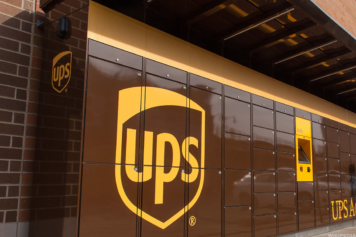The American workforce might want to pay attention to all those brown trucks full of cardboard boxes. UPS is using technology in ways that may soon be common throughout the economy.
On the surface, UPS trucks look the same as they did more than 20 years ago, when Bill Earle started driving for the company in rural Pennsylvania.
But underneath the surface, Earle says, the job has changed a lot. The thing you sign your name on when the UPS guy gives you a package used to be a piece of paper. Now it’s a computer that tells Earle everything he needs to know.
The computer doesn’t just give advice. It gathers data all day long. Earle’s truck is also full of sensors that record to the second when he opens or closes the door behind him, buckles his seat belt and when he starts the truck.
Technology means that no matter what kind of job you have — even if you’re alone in a truck on an empty road — your company can now measure everything you do.
In Earle’s case, those measurements go into a little black box in the back of his truck. At the end of the day, the data get sent to Paramus, N.J., where computers crunch through the data from UPS trucks across the country.
“The data are about as important as the package for us,” says Jack Levis, who’s in charge of the UPS data. It’s his job to think about small amounts of time and large amounts of money.
“Just one minute per driver per day over the course of a year adds up to $14.5 million,” Levis says.
His team figured out that opening a door with a key was slowing their drivers down. So drivers were given a push-button key fob that attaches to a belt loop.
The team figured out how to use sensors in the truck to predict when a part is about to break.
But Earle says there is another side of driving around a truck full of sensors: “You know, it does feel like Big Brother.”
Levis says the data are just a new way to figure out how to do things better, and faster. And, he says, the drivers benefit from that along with the company.
“They’re the highest paid in the business, which is why my job is to keep them productive so they remain the highest paid in the industry.”
Still, issues over the data the company collects have become part of the bargaining process between the drivers’ union and the company. Under the drivers’ contract, the company cannot discipline drivers based solely on data or collect data without telling them.
This kind of back and forth — about what kind of data companies can collect and what they can do with it — isn’t limited to UPS. It’s going to start popping up for more and more workers and more and more companies.
source: npr.org


